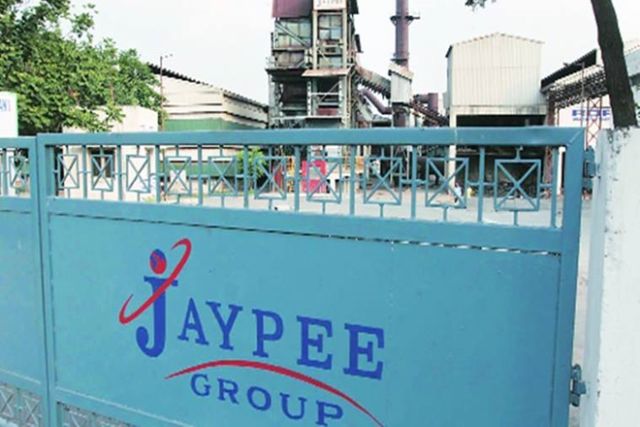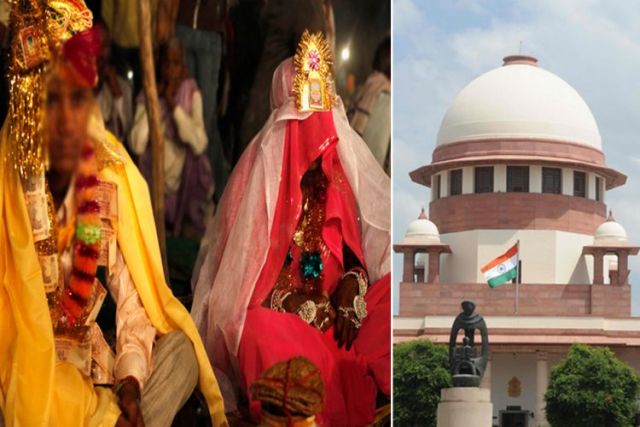
by Editor | May 25, 2021 | News, Politics
 New Delhi : The Supreme Court on Monday told Jaypee Associates to keep Rs 2,000 crore ready before its next hearing as it refused to permit it a part deposit of Rs 400 crore by Friday.
New Delhi : The Supreme Court on Monday told Jaypee Associates to keep Rs 2,000 crore ready before its next hearing as it refused to permit it a part deposit of Rs 400 crore by Friday.
A bench of Chief Justice Dipak Misra, Justice A.M. Khanwilkar and Justice D.Y. Chandracud asked the real estate major to keep ready the sizable amount as company counsel Anupam Lal Das said that they have Rs 50 crore “ready in hand” and will arrange for another Rs 350 crore by Friday.
He said that the Jaypee Associates will be depositing Rs 400 crore every month starting with January 2018.
The top court had directed the real estate major to deposit Rs 2,000 crore to protect the interest of the home buyers of Jaypee Infratech – it’s wholly owned company – restructuring on the orders of the Allahabad bench of the NCLT.
The IDBI had moved the National Company Law Tribunal (NCLT) for default of payment against the loan taken by it.
—IANS

by Editor | May 25, 2021 | News
 New Delhi : The Supreme Court on Wednesday said sex with wife below 18 years of age is rape, striking down the provision of criminal law that permitted sex with wife aged between 15 and 18.
New Delhi : The Supreme Court on Wednesday said sex with wife below 18 years of age is rape, striking down the provision of criminal law that permitted sex with wife aged between 15 and 18.
The husband is liable to be prosecuted if the woman files a complaint within a year of the sexual act, the Supreme Court said.
The landmark order comes at a time when the apex court is already hearing petitions calling for marital rape to be declared crime and a debate over the age of consent.
The court, however, made it clear that it was not saying anything on the larger issue of marital rape even though the verdict would have a prospective affect on that.
Rape and child marriage laws of India disagree on age of consent. Section 375 of the Indian Panel says sex with a girl less than 18 is rape but it makes an exception allowing sex with wife who is 15 or above, saying it is not rape even if it is without her consent.
A bench of Justice Madan B. Lokur and Justice Deepak Gupta — in separate but concurring judgements — said the exception was “arbitrary, discriminatory and capricious”.
Justice Lokur said the exception has no rational nexus with the objective sought to be achieved by the different statutes.
Describing as artificial the distinction between minor girl and a minor girl in child marriage, Justice Lokur said it was contrary to the philosophy of many statutes like Prohibition of Child Marriage Act and Protection of Children from Sexual Offences Act.
The court also urged the Centre and the state governments to take proactive steps to discourage child marriages.
Justice Gupta said the exception carved out in Section 375 of the Indian Penal Code was violative of Article 14, ArticLe 15 and Article 21 of the Constitution.
—IANS

by Editor | May 25, 2021 | News, Politics
 New Delhi : The Supreme Court on Monday ruled that there will be no sale of firecrackers during Diwali, as it restored a November 2016 order banning the sale and stocking of firecrackers in Delhi and National Capital Region.
New Delhi : The Supreme Court on Monday ruled that there will be no sale of firecrackers during Diwali, as it restored a November 2016 order banning the sale and stocking of firecrackers in Delhi and National Capital Region.
A bench headed by Justice A.K. Sikri, while restoring the order, said: “We should see at least in one Diwali the impact of a cracker-free festivity.”
However, the court said that the September 12, 2017 order lifting the ban on the sale and stocking of firecrackers in Delhi NCR will be back into effect from November 1.
—IANS

by Editor | May 25, 2021 | Corporate, Corporate finance, News, Politics
 New Delhi : The Supreme Court on Tuesday sought response of the Centre and the Election Commission (EC) on a plea challenging changes to various statutes through two Finance Acts for issuance of electoral bonds for electoral funding.
New Delhi : The Supreme Court on Tuesday sought response of the Centre and the Election Commission (EC) on a plea challenging changes to various statutes through two Finance Acts for issuance of electoral bonds for electoral funding.
The bench of Chief Justice Dipak Misra, Justice A.M. Khanwilkar and Justice D.Y. Chandrachud sought responses on the plea by petitioner NGOs Association of Democratic Reforms (ADR) and the Centre for Public Interest Litigation (CPIL) who also sought direction that political parties must not be allowed to accept any cash donations.
The petitioner NGOs have challenged various amendments to the Companies Act, Income Tax Act, Representation of the People Act, Reserve Bank of India Act and the Foreign Contribution Regulations Act (FCRA) made through the Finance Act 2017-2018 and the Finance Act 2016-2017.
The petitioner NGOs have contended the import of these amendments was that corporate houses could make unlimited donations to political parties and need not even give details of such donations.
Besides, the annual contribution reports of political parties to be furnished to the Election Commission need not mention names and addresses of those contributing by way of electoral bonds, the petition said.
“This will have a major implication for transparency in political funding,” said counsel Prashant Bhushan appearing for the ADR and the CPIL.
Through the amendments under challenge, the earlier limit of 7.5 per cent of the company’s average three-year net profit for political donations has also been removed.
In other words, corporate houses can make unlimited political donations without divulging the name of political parties they are funding.
—IANS

by Editor | May 25, 2021 | News, Politics
 New Delhi : The Supreme Court on Friday said that states were obliged to compensate the victims of cow vigilante groups.
New Delhi : The Supreme Court on Friday said that states were obliged to compensate the victims of cow vigilante groups.
The apex court asked all the states to file a report on the compliance of its order by appointing a nodal officer to prevent violence by the cow vigilante groups across the country.
“Victims are to be compensated. It is obligatory on the part of the state to compensate the victim of crime,” the bench headed by the Chief Justice Dipak Misra said.
Under the Code of Criminal Procedure, the state is under obligation to have a scheme for victim compensation and if they don’t have then they should have one, it added
Senior counsel Indira Jaising appearing for one of the petitioners had urged the apex court order compensation to the victims of violence by the vigilante groups.
Jaising said that there should be a National Policy for the Prevention of Crime.
Senior counsel Kapil Sibal also appearing for one of the petitioner told the court that while the perpetrator of violence in the name of protecting vows were on bail, the victims faced FIRs and persecution.
—IANS

 New Delhi : The Supreme Court on Monday told Jaypee Associates to keep Rs 2,000 crore ready before its next hearing as it refused to permit it a part deposit of Rs 400 crore by Friday.
New Delhi : The Supreme Court on Monday told Jaypee Associates to keep Rs 2,000 crore ready before its next hearing as it refused to permit it a part deposit of Rs 400 crore by Friday.


